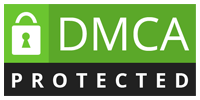As we start the new decade, we have seen drastic changes in the current digital age that we are in. Cybercrime posed a great threat more than ever, as tools are becoming rapidly more available and more sophisticated for hackers.
With these on hand, 2020 is set to increase demands for cybersecurity professionals to take measures on how to protect personal and enterprise data from threats.
Cybersecurity professionals play an important role in keeping companies from data breaches. According to IBM Security and the Ponemon Institute, organizations incur an average of $3.62 million worldwide.
As a result, big companies are opening more opportunities for experts to help them mitigate these risks. But how exactly can one become a cybersecurity professional in just 3 months?
Here are the few important steps that you should consider.
Obtaining a bachelor’s degree
If you want to work on the technical front, a degree is a mandatory requirement for many job positions. Although not all companies require such, obtaining formal education will give a head start and a competitive advantage against other applicants.
However, most professionals working in this field have no college degree. Making use of technology, most skilled workers are self-taught through online training.
Securing Cybersecurity certifications
If you are transitioning into a new field, certification will help you secure a spot in an evolving field of cybersecurity.
Most big companies now are looking for professionals that are more experienced and ready. They invest more in individuals that require no additional training and certifications are the easiest and fastest way to acquire these skills necessary for employment.
Taking educational courses to develop necessary skills
In order to acquire the requisite skills, information security students can enroll in different online courses that offer knowledge about cybersecurity, such as courses in IT fundamentals, cloud security, cryptography, network security, database security, ethics, and project management. Enrolling in these courses will help you strengthen your portfolio as you enter into the real world.
Reliable Cyber Solutions offers some of the best cybersecurity courses you might want to take to take your career to the next level.
Understanding first the roles and responsibilities
Before entering into such a profession, it is very important that you study first the roles and responsibilities a specialist has.
These include the following but not limited to: monitoring operations and infrastructure, maintaining security tools and technology, internal and external policies of the company, working with different departments in the organization, implementing new technology, and learning Audit control and policies.
Acquiring the necessary skills
Just like any job, being a cybersecurity professional requires numerous skills that will depend on what position you are applying for. Generally, these include penetration skills, risk analysis, and overall security assessments.
However, security specialists generally must have extensive knowledge of programming languages like C, C++, and Java. These will allow professionals to create a better and resilient security measure, creating more value for the company.
It is also essential that you must have non-technical skills like having a critical mind, curiosity, and passion for learning and research.
Hackers are becoming more creative nowadays and there is a need for specialists to always practice competence and due diligence, in order to combat potential data leaks. This is made possible by practicing thorough examination and strategy formulation.
Knowing where you want to go
One of the most important steps in becoming a certified cybersecurity professional is to understand your skills. Are you good at technical things or are you more confident in the business and legal side of the company?
After examining your strengths, the next thing is targeting what jobs you want. You can start by searching for employment that is fit for your skills and experiences. Reach out to hiring managers and recruiters for they can help you direct your path in the right direction.
If you meet the requirements for a job, apply for it, and earn experience. If not, obtain the skills required first. Some jobs that are perfect to obtain knowledge include network administrator, SOC analyst, Cyber policy analyst, and vulnerability analyst.
With the technical and non-technical skills that you can gain from these, you are more than ready to move around the industry and become a cybersecurity professional in no time.










